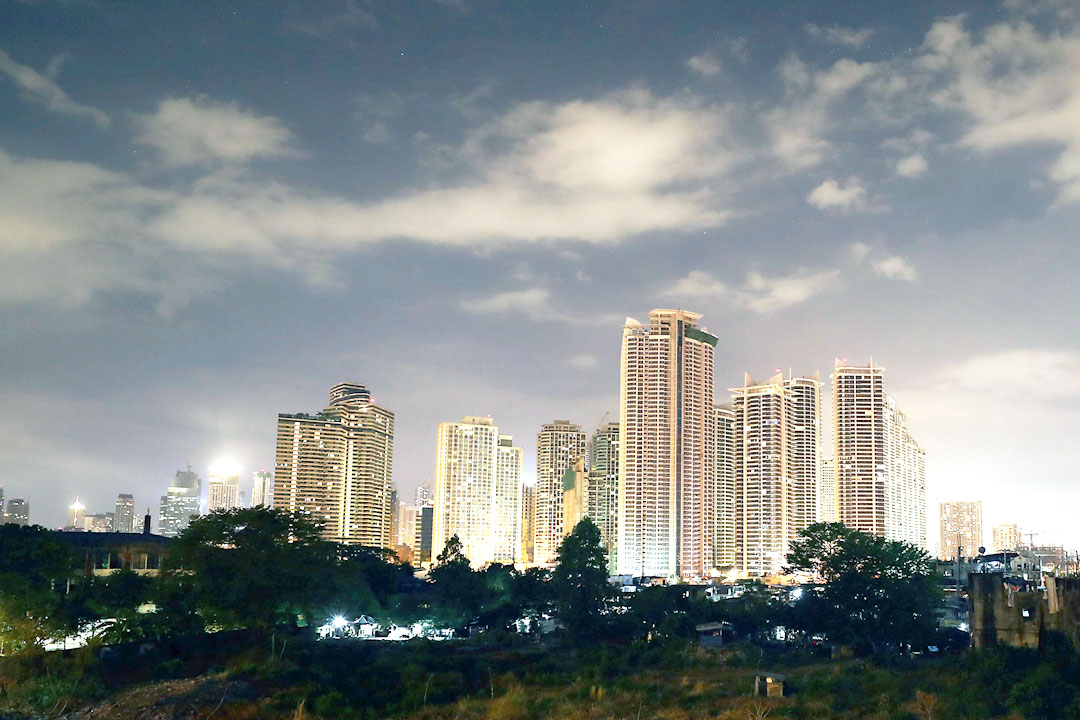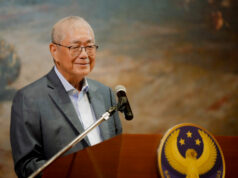Charter change needs to be limited to just economic provisions — NEDA secretary

By Luisa Maria Jacinta C. Jocson, Reporter
NATIONAL ECONOMIC and Development Authority (NEDA) Secretary Arsenio M. Balisacan said that he would prefer that any amendments to the Constitution only be restricted to its economic provisions.
“All these economic restrictions in the Constitution, especially with all these major developments in the region, there are so many other places to go for investment. You can go to Thailand, Indonesia, Vietnam, or Cambodia,” Mr. Balisacan told reporters on the sidelines of the Bangko Sentral ng Pilipinas’ (BSP) 2024 Annual Reception for the Banking Community on Friday.
“If you don’t fix or make our country open to investment, they won’t come to us. We need all these investments,” he added.
Asked if he would prefer limiting the amendments to just the economic provisions, Mr. Balisacan said: “That’s what we’ve been saying. It has to be. Otherwise, you may create more uncertainty. At least the economic provisions, you know what’s in there.”
President Ferdinand R. Marcos, Jr. last week said he supports proposals to amend the economic provisions of the 1987 Constitution, which he said was “not written for a globalized world.”
However, he was not in favor of allowing full foreign ownership of land, media and power generation.
Mr. Balisacan said that opening up the economy will further encourage competition and benefit the public.
“We really need to put competitive pressure on the economy so that efficiency can improve, quality of goods and services can improve, prices are contained at competitive levels… That’s what we don’t get if we have so much concentration on just a few hands,” he said.
“They also bring in new technologies, new ways of doing things. We need those kinds of externalities in the economy. There are many benefits of being open, not just growth in the short term. It creates dynamics,” he added.
The government has been implementing reforms to further open up sectors of the economy. In 2022, it amended the 85-year-old Public Service Act (PSA) to allow full foreign ownership in telecommunications, domestic shipping, railways and subways, airlines, expressways and tollways, and airports.
“As far as the economy is concerned, we need to open the economy, whether by constitutional amendments or other means, but that can only go so far with other laws,” Mr. Balisacan said.
Mr. Balisacan said that one sector that can be opened to foreign ownership is education to boost the quality of learning, research, and innovation.
Last week, senators issued a statement opposing a proposal for both chambers of Congress to vote jointly to revise the Constitution.
The Constitution may be amended either through a constitutional convention composed of delegates, by Congress sitting as a constituent assembly or through a people’s initiative.
GROWTH PROSPECTS
Meanwhile, Mr. Balisacan said that he is “hopeful” that gross domestic product (GDP) growth in the last quarter of 2023 will outperform economic growth in the third quarter.
“I haven’t seen the numbers, but I hope it will be good, because our leading indicators are good, like our labor market (figures),” he said.
A BusinessWorld poll of 20 economists showed that GDP likely expanded by 5.7% in the fourth quarter. If realized, this would be slower than the 5.9% growth in the third quarter and the 7.1% expansion in the same period in 2022.
The economy grew by 5.5% in the nine-month period. To meet the lower end of the government’s 6-7% goal for 2023, GDP would need to grow by 7.2% in the fourth quarter.
Fourth-quarter and full-year 2023 GDP data is set to be released on Jan. 31.
Mr. Balisacan also said economic growth will be driven by easing inflation.
“(The economy) is largely domestic… I think despite the high inflation, domestic spending is quite robust. Of course, it could have been much better if inflation had declined faster than what we’ve seen. The fact that inflation is seen to continue to decline should give confidence to our people,” he added.
Inflation eased to 3.9% in December, the lowest print in 22 months.
Last year, inflation averaged 6%. This marked the second straight year that inflation breached the central bank’s 2-4% target.
PPP PROJECTS
Meanwhile, Mr. Balisacan said that the NEDA is studying the possibility of a public-private partnership (PPP) to help finance the Bataan-Cavite Interlink Bridge project.
“We would want to see the Bataan-Cavite bridge eventually as a PPP. If it’s profitable, it may be attractive for the private sector,” he said.
The private sector may take on the operations and management of the bridge and eventually buy the project’s debt, Mr. Balisacan said.
“If it’s profitable enough, even the debt can be transferred to the private sector so they can continue servicing the debt, pay back the government, those kinds of things,” he added.
Last month, the Asian Development Bank (ADB) approved up to $2.1 billion in financing for the bridge, which will link the provinces of Bataan and Cavite across Manila Bay.
The project involves the construction of a 32.15-kilometer (km) “climate resilient” bridge, 24 km of marine viaducts and eight kilometers of approach road.
Mr. Balisacan said that NEDA is also hoping to push for airport PPP projects.
“The only one been approved for Swiss challenge is Laguindingan…if we do well in the Laguindingan airport, that would be a good window for doing the other airports. We have so many other projects that are candidate for PPPs,” he said.
At a Palace briefing on Friday, Mr. Balisacan announced that the NEDA Board approved the negotiated parameters, terms, and conditions of the upgrade, expansion, operations, and maintenance of the Laguindingan International Airport Project in Northern Mindanao.
The project will now undergo the comparative challenge process following the recently enacted PPP Code.
“Prospective challengers will be given 90 days from the publication of the invitation for comparative proposals to submit their proposals. The original proponent will be given 30 calendar days to match responsive comparative proposals. If no comparative proposals are received, the project shall be awarded to the original proponent by May 2024,” Mr. Balisacan said.



